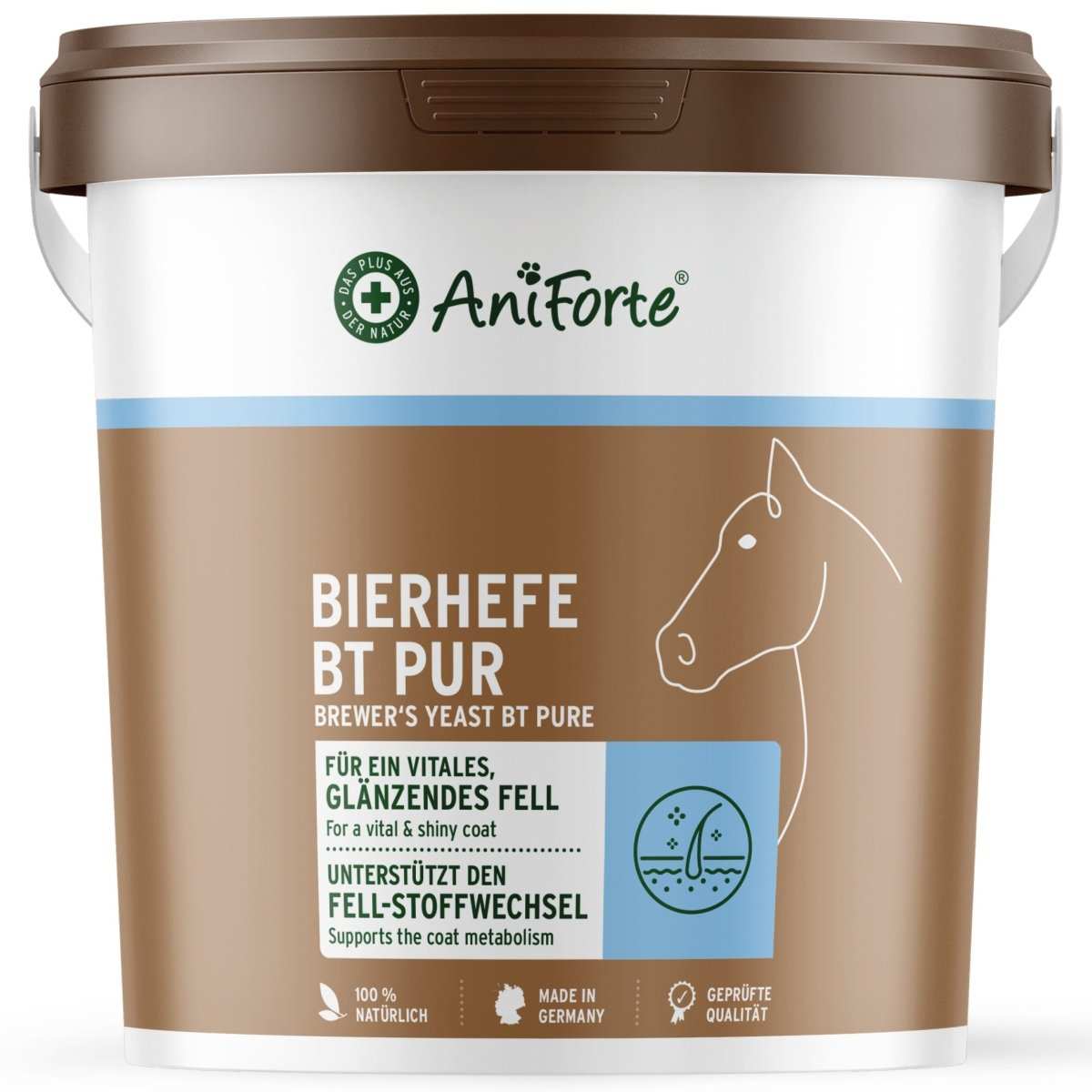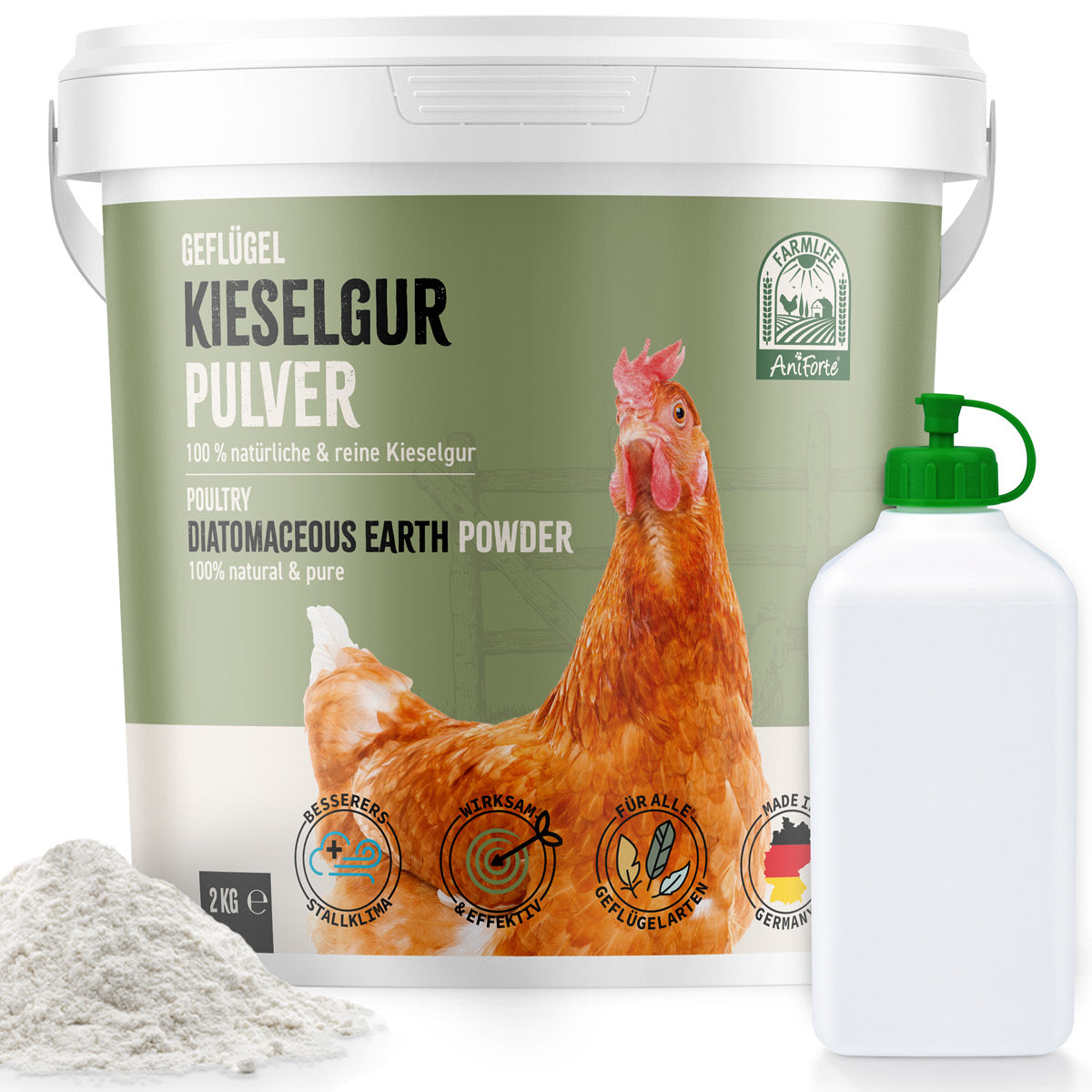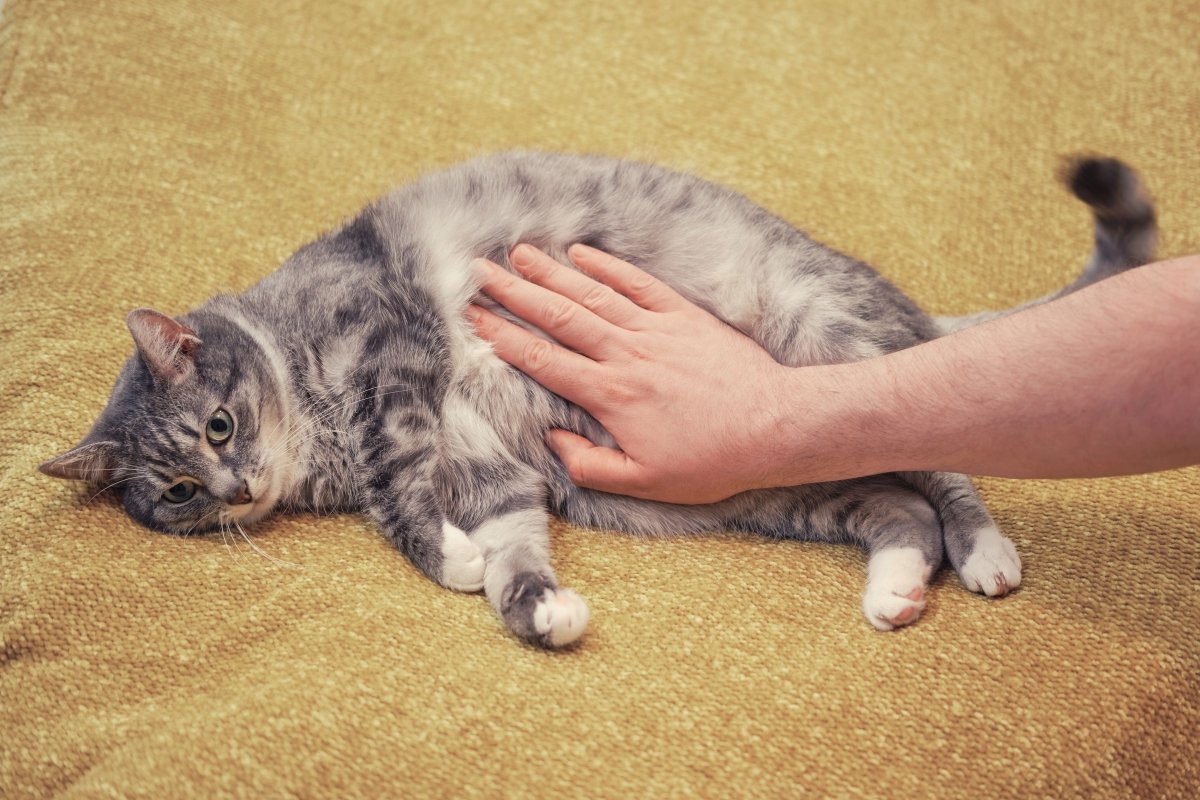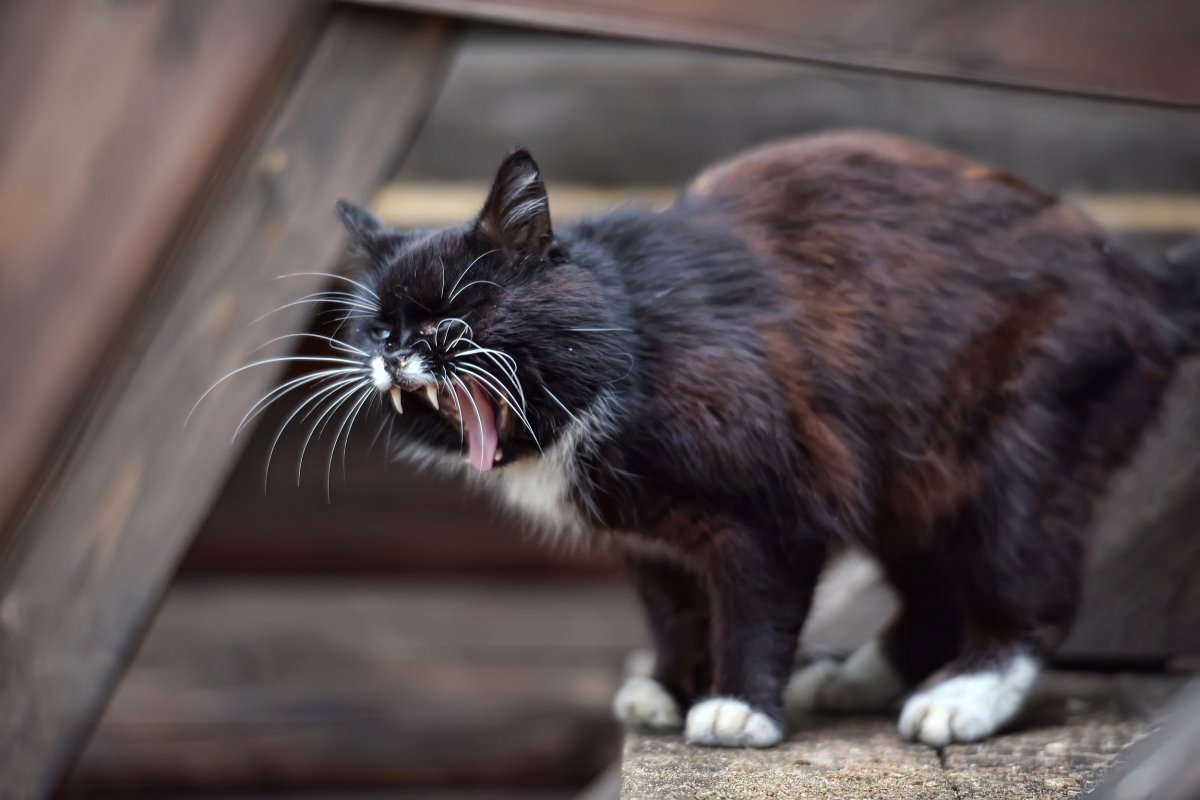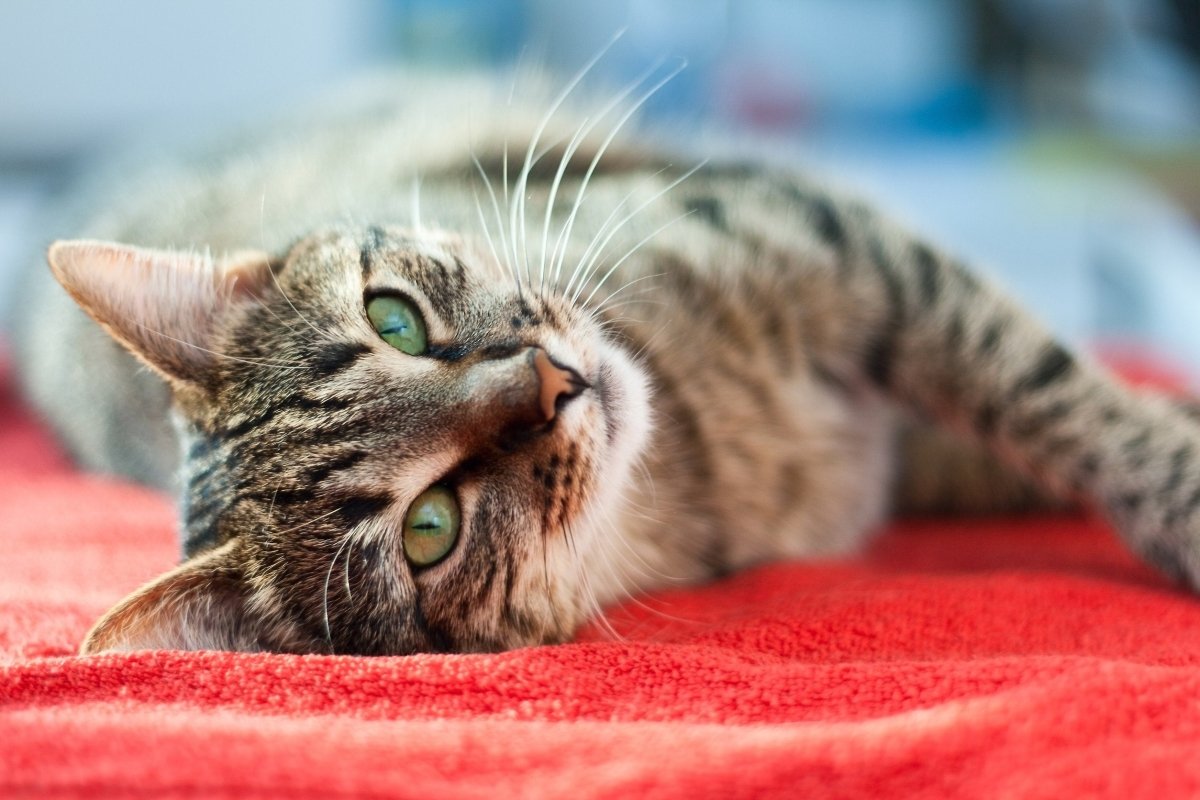Your cat has diarrhea and you're worried that something might be wrong? Although diarrhea can be an indication of illness, in most cases the causes are harmless and the symptoms are only temporary. In this article, we at AniForte would like to explain to you when you should take your cat to the vet, which typical triggers can cause diarrhea in your cat and how you can relieve your house cat or outdoor cat's discomfort with just a few natural remedies.
Always bear in mind that healthy intestinal flora is determined in particular by the cat's daily diet. To prevent diarrhea in your cat, you should pay attention to natural ingredients and the ideal nutrient composition. In addition to high-quality cat food, at AniForte you will find valuable natural supplements for the stomach and intestines that can contribute to your cat's health; give nature back to your pet with AniForte products!
Is my cat ill? Cat with diarrhea as an indicator
The fact that your cat has diarrhea or other problems with the gastrointestinal tract is hard to miss, especially in our house tigers. Even though cats are real masters at hiding illnesses, pain etc., diarrhea should be noticed by the owner at the latest when cleaning the litter box. In addition, it is not uncommon for your cat with diarrhea not to make it to the place where it normally relieves itself, because cat diarrhea is said to be 1 liter of feces per day. So if you keep finding your cat's droppings in your home, it may be that he is having problems defecating. You can tell whether this is actually diarrhea by the following symptoms:
- Mushy or watery stools
- Usually lighter in color or changed in color
- Odor more unpleasant than normal cat excrement
- Foreign bodies / worms / parasites in the feces
Why does my cat have diarrhea?
Now that you know how to recognize diarrhoea in your cat, we would of course like to tell you about possible causes and triggers for your cat having softer droppings than usual. In most cases, these are harmless causes that pass quickly or only occur once - you can then help your cat with high-quality, 100% natural psyllium husks from AniForte; these bind the water and also fill the stomach so that your cat's gastrointestinal activity is regulated during diarrhea.
If you have been observing the symptoms for a long time or if they are recurring, it is advisable to visit the vet as soon as possible - especially if vomiting occurs or your cat feels visibly unwell. While your cat has diarrhea, it loses a lot of fluid, which can lead to dehydration. For this reason, it is important to offer her plenty of water to keep her hydrated.
Temporary cat diarrhea is usually harmless
As already mentioned, temporary or one-off, mushy diarrhea in your cat is not usually a cause for concern. There is usually a good reason why your cat's gastrointestinal tract is out of joint for a short time. Very often, harmless diarrhea occurs, for example, after car rides or other situations in which your cat has been exposed to unusual stress.
If you notice diarrhea in your cat, ask yourself whether your cat has been to the vet in the last few hours or days, had to move with the household, a hostile cat or even a dog has invaded its territory or something similar. If this is not the case, changing your cat's food too quickly can also lead to diarrhea. In order not to overload the sensitive intestines of our kittens, it is always advisable to change their food slowly and gradually over a period of weeks.
Cat with diarrhea: disease-related causes
If your cat has diarrhea, you should first be able to rule out the harmless or temporary causes mentioned above. However, if you notice that your cat has had diarrhea for more than 24 hours, if your cat is passing an unusual amount of stool or if it is no longer able to go to the litter box in time, these are definitely warning signs that something might be wrong with your cat.
Even if there are accompanying symptoms such as fever, vomiting, exhaustion or particularly withdrawn or aggressive behavior, you should always visit the vet. As you know your pet best, you will quickly notice if something is wrong, if your pet is quiet and withdrawn or even in pain. Don't forget to bring a sample of your cat's feces with you to the vet; this can already provide a clear diagnosis. We would like to list possible illness-related causes of diarrhea below.
- Eating something wrong: Intolerance & poisoning in cats with diarrhea
Free-roaming cats in particular often ingest foreign bodies and the like, which unfortunately we have no control over. You will quickly notice this, especially if your cat has eaten poison. In addition to diarrhea, this can also lead to vomiting, fever or even neurological symptoms; in this case, you should of course contact the vet or animal emergency service as soon as possible.
The treatment of food intolerances is somewhat less acute, but still urgent. Even if this is quite rare in cats, allergies can occur, especially with poor quality food. Therefore, look out for natural food that is ideally tailored to your cat's needs and find out which wet food and natural snacks are particularly easy for your cat to tolerate.
- Cat with diarrhea: Infection from another cat - diarrhea due to parasites or viruses
Infections are also a common trigger when a cat has diarrhea. These occur particularly frequently in close contact with sick outdoor cats or strays. But even drinking from a puddle can lead to transmission. The vet can determine under the microscope whether these are parasites such as worms. In some cases, the pests can even be seen in the faeces with the naked eye; to avoid infection, your cat should receive regular worming treatments. You can then support the intestinal environment with our natural AniForte Wermix for cats or with Wermix liquid for cats, which contain valuable herbs for your cat's stomach and intestines.
Viral or bacterial infections also lead to diarrhea in cats; particularly common are feline influenza (parvovirus), feline immunodeficiency virus (FIV), feline coronavirus (FCoV) and feline leukemia virus (FeLV). Bacteria such as salmonella can also be to blame for your cat's diarrhea. As the symptoms of these diseases are quite varied, the diagnosis should be left to a vet. At AniForte you will find many healthy feed supplements to support your cat's immune system.
- Organ diseases as a cause of cats with diarrhea
Problems with your cat's internal organs can also be the cause of diarrhea. Intestinal diseases such as inflammation (IBD) or structural changes are particularly obvious causes. However, other organ dysfunctions can also be the reason for your cat's diarrhea.
As with us humans, for example, our house tigers can also suffer from hyperthyroidism, which interferes with the hormone balance. Hypothyroidism is extremely rare in cats. In order to find the cause of your cat's diarrhea, the vet will carry out a wide range of examinations - from ultrasound and fecal examinations to blood tests to determine any deficiencies.
Alarming accompanying symptoms: When to see the vet if your cat has diarrhea?
Diarrhea in cats is often underestimated, because even 24 hours of severe diarrhea can result in a massive loss of fluids. If the cause of your cat's diarrhea is unclear, if it is passing a lot of or frequent liquid stool or if you simply have a bad feeling, don't hesitate to visit the vet immediately. They can help your cat with appropriate infusions, find the causes and ensure that your cat's condition improves in the short and long term.
Especially if there are accompanying symptoms such as vomiting and fever, you should not wait any longer. As cats are normally little fighters and do not show illnesses immediately, these clear symptoms are warning signs that something is actually wrong. Light-colored mucous membranes, dull fur, a stooped gait and general exhaustion or confusion also indicate an illness that should be treated by a vet first.
Immediate help: What you can do if your cat has diarrhea
After mild, one-off diarrhea, you can support your cat's intestines with some natural remedies such as our AniForte psyllium seeds. A light diet of moray and chicken also helps to relieve your cat's intestines and quickly remove any harmful substances. It is important to administer such home remedies, medicines and other homeopathic remedies only in consultation with your vet; you should offer your cat plenty of fluids during the transitional period before visiting the vet. If possible, you can also give them directly into the mouth via a syringe until your cat is treated at the vet with an infusion containing fluids and important electrolytes.
Do you have any questions about cats with diarrhea? Feel free to contact us.

